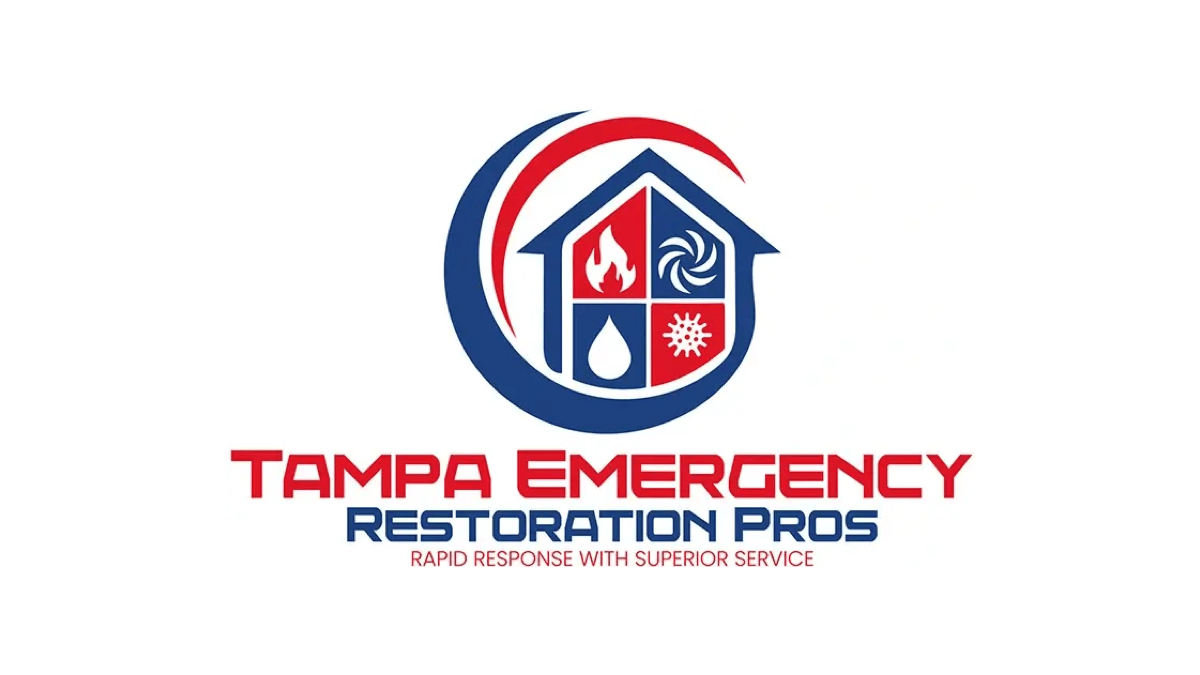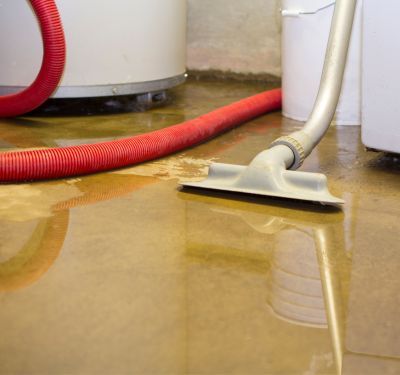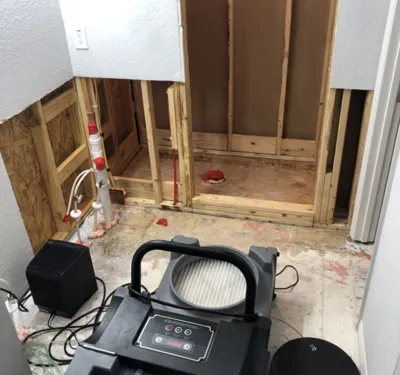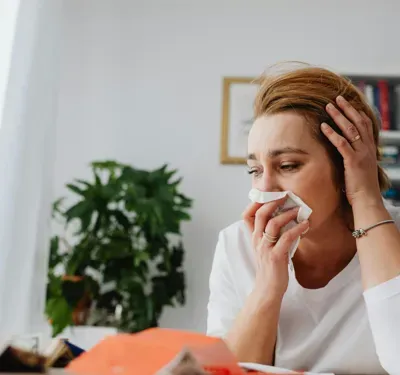The Role of Air Quality Testing in Preventing Respiratory Illnesses

Poor air quality, exacerbated by rising pollution, can lead to respiratory issues and worsen allergies. In places like Tampa, where outside air quality varies, ensuring indoor air is clean is crucial. Air quality testing helps identify pollutants like mold, pollen, dust mites, and chemical fumes, which can cause health problems. For thorough air quality assessment, consider professional services like Tampa Emergency Restoration. Breathe easier and ensure a healthier home environment.
With pollution on the rise, many people worry about what type of air they inhale in their lungs. The growing number of pollutants in the air contributes to more people developing respiratory issues and worsens already existing allergy symptoms in others.
While the quality of outside air in places like Tampa often varies between good and moderate, many want to keep the air inside their homes clean and safe. One effective method to check if the air in your home meets health standards is through air quality testing.
Air quality testing identifies harmful pollutants, such as mold, pollen, dust mites, and chemical fumes, that can cause or exacerbate respiratory illnesses. Let’s talk about the role of air quality testing in preventing respiratory illnesses.
What Is Good Air Quality
Organizations like the EPA and the WHO have specific standards for what they consider good-quality air. According to these standards, acceptable air has a very low concentration of pollutants like particulate matter (PM2.5 and PM10).
Some common particles that pollute indoor air are mold, dust, volatile organic compounds, and pet dander. These can arise from household products, building materials, and everyday activities. External pollutants like pollen and industrial emissions can also infiltrate your home, affecting indoor air quality.
Impact of Poor Air Quality on Health
Whether at home or at work, we spend a significant portion of our lives indoors, so if the air we breathe is subpar, it can impact our well-being. Breathing low-quality air can have serious repercussions and side effects:
- Short-term effects: You might experience irritation of the eyes, nose, and throat. It’s common to feel some shortness of breath or start coughing more often.
- Long-term effects: Over extended periods, exposure to polluted air can lead to chronic respiratory diseases, such as asthma and chronic bronchitis.
- Effects on vulnerable populations: Individuals with sensitive health are more susceptible to the adverse effects of poor air quality. Children whose lungs are still developing can suffer irreversible damage. People with respiratory diseases or congenital disorders may experience worsened symptoms.
The Benefits Of Testing Air Quality
People put a lot of effort into making their homes cozy and enjoyable. That effort should also extend to checking and improving air quality, as it directly impacts our health. Taking the time to assess and improve the air you breathe can significantly contribute to your overall well-being.
Identification of Pollutants
One of the many benefits of testing the air quality in your home is the ability to identify hidden pollutants. Many harmful substances can be present in the air without any visible indicators. These can include:
- Volatile organic compounds from household products
- Mold spores
- Radon
- Carbon monoxide
- Pet dander
- Pollen
By testing for these pollutants, you might discover that your cleaning products release VOCs or that mold is growing in a damp area. By identifying these pollutants, you can tackle them head-on and reduce their presence in your living space.
Health Benefits
Poor air quality contributes to various health issues, particularly respiratory illnesses. Airborne pollutants and irritants can trigger asthma attacks and exacerbate allergies. By testing and improving your home’s air quality, you can prevent these conditions from appearing or getting worse.
For those with pre-existing respiratory issues, cleaner air means fewer symptoms and a reduced need for medication. Regular air quality testing helps prevent potential problems and maintain a healthier household.
Improved Quality of Life
Beyond health benefits, better air quality improves your overall well-being and comfort indoors. Cleaner air minimizes respiratory issues and allergy symptoms. You might notice fewer headaches, less fatigue, and an improved sense of well-being.
Improved air quality also leads to better sleep. This, in turn, boosts your productivity and mood during the day. If you want to create a more comfortable and inviting home environment and improve your quality of life, you must put effort into improving your indoor air quality.
When To Test The Air Quality in Your Home
Every day is a good day to check the air quality inside your space, but if you notice certain signs, you should make it a priority. Persistent respiratory symptoms such as coughing and sneezing often indicate poor air quality.
Similarly, unusual odors or visible mold growth are clear signs that testing needs to happen as soon as possible. If you’ve recently undergone renovations or brought in new furniture and products, these can also negatively affect air quality. Many building materials and furnishings release harmful VOCs.
Regular Testing Intervals
Experts recommend testing at least once a year, but more frequent checks can be beneficial, especially if you live in an area with significant seasonal changes. Indoor air quality can worsen during certain seasons, like spring and fall because pollen counts from trees and weeds tend to rise.
Similarly, winter months often mean closed windows and reduced ventilation, which can trap pollutants inside your home. Regular testing allows you to identify and address these seasonal impacts, keeping indoor air safe and clean throughout the year.
Special Circumstances
Certain situations necessitate more immediate air quality testing. Testing becomes crucial after natural disasters like wildfires or floods. Wildfires can introduce smoke and particulate matter into your home, while floods can lead to mold growth.
If your household includes infants, elderly individuals, or those with preexisting health conditions, pristine air quality becomes even more important. These groups are more vulnerable to pollutants, so regular testing helps you provide a safer environment for them.
How to Have Better Indoor Air
While testing the air quality is an important first step, you must actively try to improve the air quality in your home. To achieve better air quality, consider implementing a few practical measures, including:
- Proper Ventilation: Allowing fresh air to circulate reduces the concentration of indoor pollutants. It can be as simple as opening windows and doors to create cross-ventilation or using the fans in your bathroom and kitchen to remove the stale air.
- Air Purifiers and Filters: Appliances such as these can capture and remove air-borne pollutants. Changing the filters in your air conditioning unit or HVAC system every few months keeps them functioning efficiently, providing cleaner air.
- Houseplants: Plants like spider plants, snake plants, and peace lilies absorb airborne toxins and release oxygen. They also add some greenery and life to your home, promoting a healthier environment.
- Regular Cleaning Practices: Use a vacuum with a HEPA filter to trap fine particles and mop floors regularly. Opt for non-toxic cleaning products to minimize adding additional chemicals to your home. Remember to wash bed linens and curtains routinely to eliminate dust mites.
Enjoy Fresh, Crisp Air in Tampa, FL
Regular air quality testing is key to preventing respiratory illnesses. By testing and monitoring air quality regularly, you create a healthier space for yourself.
If you want an accurate and thorough indoor air quality assessment, consider investing in Tampa Emergency Restoration’s air testing services. With over 20 years of experience and a team of certified specialists, we stand out as a reliable choice for these services. Our prompt and professional approach guarantees that your property receives the best care possible.
Breathe easier in your own home; call us today!

Other Blogs You May Be Interested In
Categories







